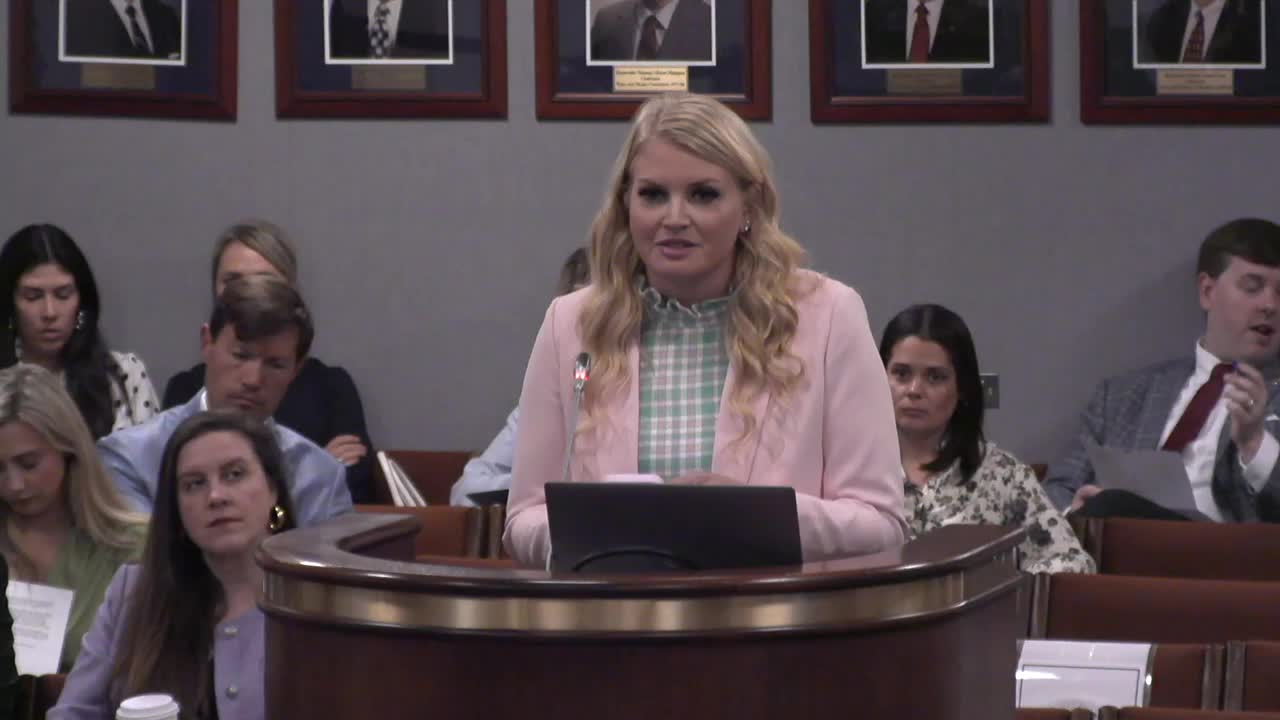Committee hears bill to require OTAs to make local managers merchant of record; amendment to preserve municipal tax controls adopted
Get AI-powered insights, summaries, and transcripts
Subscribe
Summary
Representative support and municipal officials told a House subcommittee that House Bill 3876 would require online travel agencies (OTAs) such as Airbnb and Vrbo to make professional property managers the merchant of record when they sell stays for managed properties.
Representative support and municipal officials told a House subcommittee that House Bill 3876 would require online travel agencies (OTAs) such as Airbnb and Vrbo to make professional property managers the merchant of record when they sell stays for managed properties.
The change would require OTAs to pass credit-card information and transaction responsibility to licensed managers so those managers hold funds in trust accounts subject to state real-estate oversight. Supporters said the measure would restore local audit trails and ensure local taxes tied to short-term rentals are reported and remitted in a way municipalities can verify.
The issue matters because several witnesses said OTAs increasingly hold guest money and control refunds and remittances, leaving local governments with limited ability to audit or verify tax payments. Ginger Harrelson, who identified herself as owner of Beachball Properties in Orange Beach, Ala., described an incident where an OTA issued a full refund after multiple maintenance visits and said, “We were out $7,000 to the owner who we had already paid.” Harrelson said that when OTAs hold funds offshore they also withhold the audit trail municipal finance officers need to confirm local tax remittance.
Brandon Cox of Elliott Beach Rentals (North Myrtle Beach) said the bill would require that when a property is represented by a professional manager, “they would be required for the OTAs to make us merchant of record,” adding, “It would mandate that it happens across the board for all OTAs.” Cox said licensed property managers keep trust accounts and can be audited by real-estate regulators; he said OTAs generally do not provide comparable accounting transparency.
Municipal and county associations and lodging and restaurant trade groups described core, shared goals but raised a single, specific drafting concern: Section 8 of the bill, as filed, would change the mechanism by which taxes are remitted and could replace existing municipal geocoding and local remittance systems. Dana Riley Phillips of the Municipal Association of South Carolina said the association “fully support[s] this bill with the striking of section 8,” and thanked the sponsor for agreeing to that change so that cities could retain their current geocoding and audit processes.
Representative Hewitt, the bill sponsor, offered an amendment to strike Section 8. The amendment was put to a roll call with named “aye” votes recorded for Representative Collins, Representative Cloburn, Representative Hewitt and Representative Long; the amendment was adopted. After the amendment, a roll call on the bill was begun and a series of “aye” votes were recorded; the committee then moved on to its next agenda item.
Supporters said the bill addresses three core problems: (1) loss of local auditability when OTAs act as merchant of record; (2) potential noncompliance with state real-estate trust-account rules when OTAs hold guest funds; and (3) inconsistent tax collection and remittance across jurisdictions. Hank Davis of the South Carolina Restaurant and Lodging Association said the bill’s “annual reporting requirements” and added transparency tools would help local governments better understand short-term rental activity and compliance.
Opposition was limited in the hearing record but municipal representatives asked that any new statewide remittance scheme not supplant existing local tax-collection systems. The Municipal Association and several county representatives asked that the bill preserve the ability of local governments to use geocoding software and local remittance systems; the adopted amendment removes the bill’s Section 8 language that would have created a different statewide collection mechanism.
Where the transcript records specific actions
- Amendment to H 3876 to strike Section 8: moved by Representative Hewitt; second not specified in the transcript; roll-call “aye” votes recorded for Representative Collins, Representative Cloburn, Representative Hewitt and Representative Long; outcome: amendment adopted (roll-call recorded). - Subsequent roll call on H 3876 was begun and several named members were recorded as voting “aye;” transcript does not contain a full named tally in the record provided.
What remains unresolved
The committee record supplied here documents stakeholder testimony and an amendment adopted to preserve municipal remittance controls; it does not include complete roll-call tallies for final passage of the amended bill in the excerpt provided. The Municipal Association and county witnesses asked to continue work with the sponsor on technical drafting and local enforcement details.
Ending note
Witnesses asked the committee to preserve local auditability while updating state law so licensed property managers — who by state licensing rules are required to maintain trust accounts and be subject to audit — are the merchant of record for bookings they manage. The committee adopted the sponsor’s amendment to remove Section 8 and then proceeded to the next agenda item.
